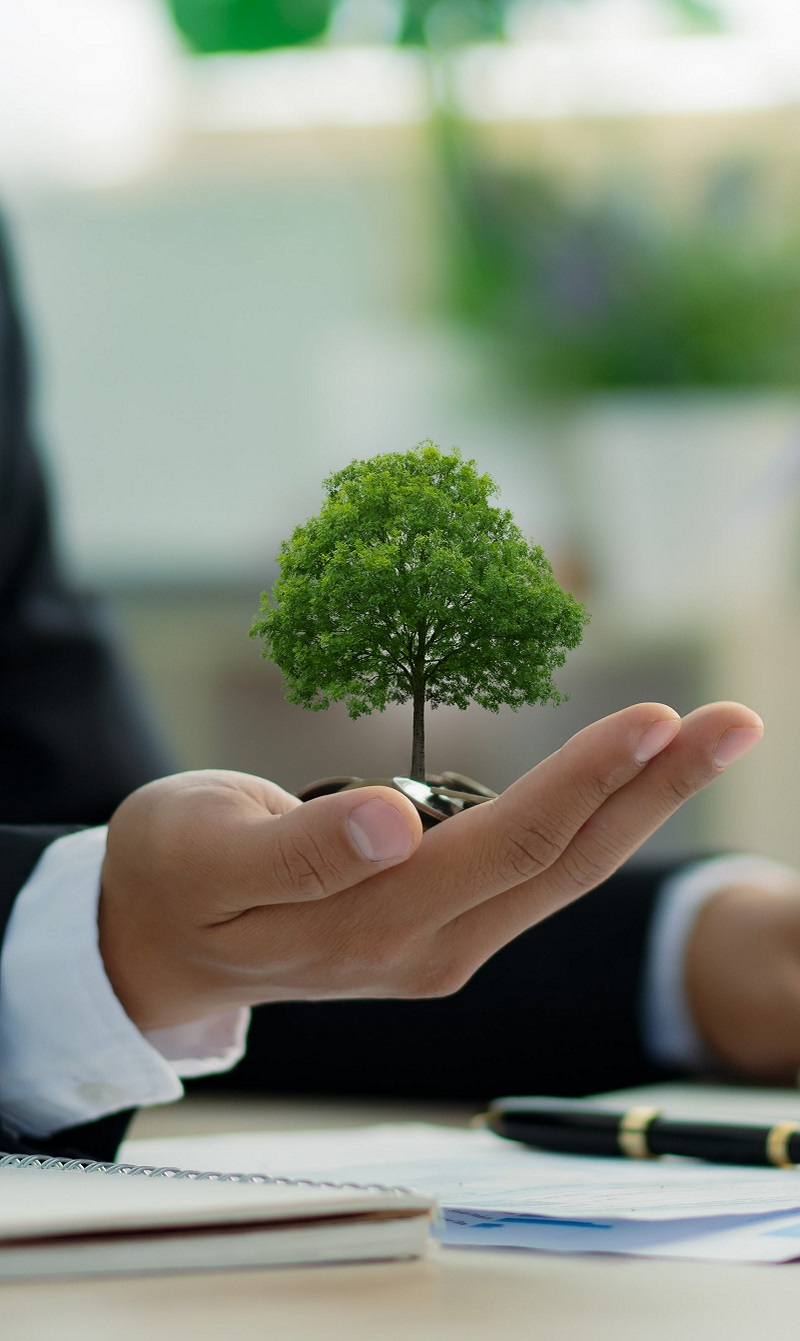The Business of Sustainability
Just how does a business manage sustainability? For the answer, here are the world’s most sustainable company in this year of 2019. This article first appeared in In Focus issue 4 magazine.
Definition of sustainability in business generally involves two categories. One, effect of business on the environment and, two, effect of business on the society. Although the aim is to make a positive impact on either one, or both, of those categories, failure to do so result in negative impact including deterioration of environment and inequality.
However, McKinsey & Company, a global management consulting firm, reports that a potential reason many companies don’t actively address sustainability despite its growing reputation among consumers and media, is that there’s no clear definition of it. In fact, McKinsey’s report states that 20 per cent of executives admit that their companies don’t practice sustainability and for the companies that do, their definition of a sustainable company vary:
- 55 per cent define sustainability as the management of issues related to the environment such as greenhouse gas emissions, energy efficiency, waste management, green-product development, and water conservation.
- 48 per cent say it includes the management of governance issues such as complying with regulations, maintaining ethical practices, and meeting accepted industry standards.
- 41 per cent say it includes the management of social issues such as working conditions and labour standards.
- 56 per cent of all the respondents define sustainability in two or more ways.
- 76 per cent of executives say sustainability contributes positively to shareholder value in the long term.
- 50 per cent see short term value creation.
Despite the varied responses, it’s safe to conclude that the consensus is that, sustainability has a positive impact on work culture, business development and society.
World’s most sustainable company in 2019
On the Global 100 list, the relatively unknown Chr. Hansen Holding is the most sustainable company in 2019. This Danish bioscience firm was founded in 1874. The company derives over 80 per cent of its revenue developing natural solutions for preserving food such as milk and yogurt, protecting crops using natural bacteria instead of pesticides and alternatives to antibiotics for animals, consumed by over a billion people daily.
The ranking of the Global 100 is awarded to large corporations globally according to their performance in reducing carbon and waste, their gender diversity among leadership, revenues derived from clean products, and overall sustainability. The list compiled by Corporate Knights, starts with around 7,500 companies that generate more than USD1 billion in revenue per year.
Although Chr. Hansen Holding won the first place on the list, beating France’s Kering SA by slightly less than 1.5 per cent of the total score, it scored markedly lower in terms of women on board than the others in the list at 29 per cent. This is a reflection of how little women there are in the scientific field as compared to Kering, a luxury fashion brand conglomerate, that boasts 64 per cent women on board.
What is Chr. Hansen Holding Doing Right?
First of all, sustainability remains at the centre of Chr. Hansen and their strategy is to focus on developing natural solutions for the world’s health, food and agricultural industries in a sustainable way. In fact, their first published sustainability commitment was in 1949. The UN Global Goals are used as their framework to link the impact of corporate strategy to sustainable development, and document their impact on sustainable development through a system they developed with accountancy firm Price Waterhouse Cooper.
Their tangible commitments to the SDGs include promoting sustainable agriculture, efficient food production, improving global health through probiotic solutions, help consumers reduce food waste and food loss.
In this case, it’s absolutely apt to say, being ranked the most sustainable company in the world is a ‘good culture shock’ indeed for Chr. Hansen.
World’s Top 10 Sustainable Companies in 2019
| Rank | Name | Country Carbon Productivity Score | Carbon Productivity Score | CEO-Average Worker per Ratio | % Women on Board | % Clean Revenues | Overall Score |
| 1 | Chr. Hansen Holding A/S | Denmark | 81% | 24:01:00 | 29% | 81% | 82.99% |
| 2 | Kering SA | France | 73% | 50:01:00 | 64% | 43% | 81.55% |
| 3 | Neste Corporation | Finland | 85% | 39:01:00 | 38% | 25% | 80.92% |
| 4 | Orsted | Denmark | 56% | 28:01:00 | 33% | 58% | 80.13% |
| 5 | GlaxoSmithKline plc | UK | 19% | 60:01:00 | 42% | 60% | 79.41% |
| 6 | Prologis, Inc. | U.S. | 92% | 203:1** | 20% | 81% | 79.12% |
| 7 | Umicore | Belgium | 93% | 33:01:00 | 30% | 81% | 79.05% |
| 8 | Banco do Brasil S.A. | Brazil | 97% | NA | 0% | 29% | 78.15% |
| 9 | Shinhan Financial Group Co. | South Korea | 77% | 11:01 | 0% | 3% | 77.75% |
| 10 | Taiwan Semiconductor | Taiwan | 29% | 99:01:00 | 20% | 63% | 77.71% |
** CEO-Average Worker Pay Ratio not disclosed. Based on disclosed Median-to-CEO pay ratio; for indicative purposes only.
Source: Forbes
Why and How of a Sustainable Business
Five reasons why you should be a sustainable company:
1. Efficiency, thus, lowering cost and increasing profit.
2. Improvement on your product value and business reputation.
3. A way your business can innovate, thus, promoting growth.
4. Reduce waste and be in line with the SDG of responsible production and consumption.
5. A positive philosophy that attracts investors and employees.
Five initial steps on how to be a sustainable company:
1. Have a set of specific goals that efficiently directs your business towards sustainability.
2. A designated person or team who will advocate sustainability to everyone at all level.
3. Allocate necessary resources such as people, funds, time and tools.
4. Encourage sustainable processes such as supply chain, production methods and product packaging.
5. Implement sustainable practices one step at a time by starting in one area of your business and making it make it work before moving onto the next one.
Download In Focus issue 4 magazine for more insights on The Future of Business is Sustainability.
Photo by Danielle MacInnes on Unsplash





